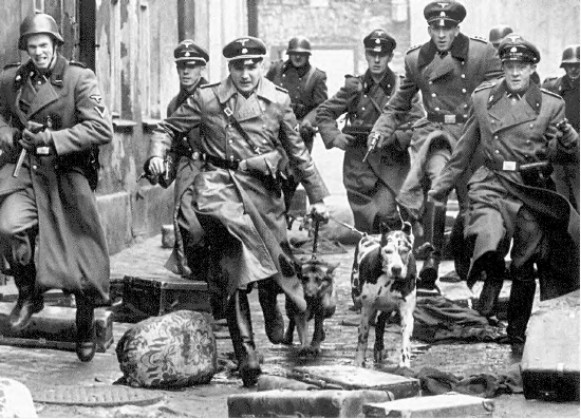Gestapo
Gestapo (abbreviation of Geheime Staatspolizei). Secret police of Nazi Germany. Created in 1933, it became an adjunct to Heinrich Himmler’s SS and developed into the most dreaded Nazi security agency, using its virtually unlimited powers to uncover, imprison, and kill ‘enemies of the Reich.’
After the signing of the Molotov-Ribbentrop Pact the Gestapo collaborated with the NKVD in persecuting political opponents. Following the invasion of the Union of Soviet Socialist Republics, Gestapo officials headed the SS mobile killer squads (Einsatzgruppen) that murdered Jews in the occupied territories (see Holocaust); they also organized the deportation of Jews to extermination camps. The Gestapo’s other principal wartime function was to suppress resistance movements throughout Europe. In 1939–40 Gestapo agents arrested members of the Government-in-exile of the Ukrainian National Republic in Warsaw and Paris. When the Ukrainian nationalist movement began to oppose German policy, the Gestapo imprisoned leaders of the OUN (Bandera faction) and killed leading OUN (Melnyk faction) figures in Zhytomyr and Kyiv (including Ivan Irliavsky, Ivan Rohach, and Olena Teliha). It conducted mass arrests and executions of rank-and-file nationalists and played a leading role in terrorizing the population during the Nazi occupation of Ukraine (see Nazi war crimes in Ukraine).
[This article originally appeared in the Encyclopedia of Ukraine, vol. 2 (1988).]

